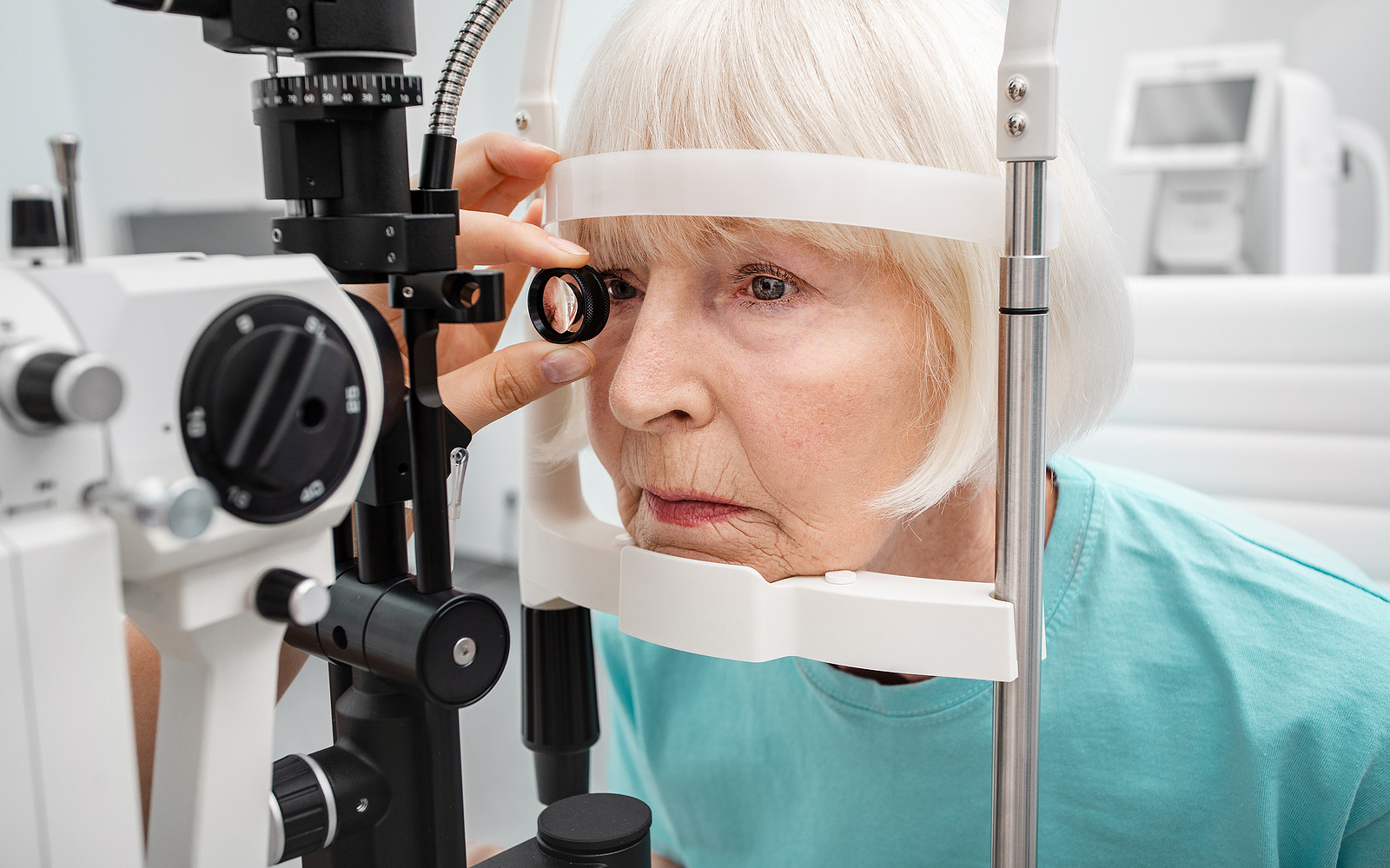Back to School with LASIK

It’s that time of year again, an exciting time for college students who are getting ready to return to campus. You probably already have a full to-do list, including picking up all those school supplies. However, here’s one more thing not to forget: your school eye exam.
A regular vision examination needs to be part of every back-to-school routine. It’s important to see the board or digital screen clearly, and reduce eye fatigue and stress to get the most out of classes.
Consider LASIK surgery to restore your vision prior to heading off to college. If you have concerns or wonder what to expect from the LASIK procedure, read on. Imagine waking up with clear vision or going through the new school year playing sports, running, and studying without worrying having to bother with eyeglasses or contact lenses.
At Swagel Wootton Eye Institute, we specialize in LASIK eye surgery for patients in the greater Phoenix area at our clinics in Mesa and Chandler, AZ. Our dedicated staff is always ready to answer questions about LASIK. So, feel free to take the first steps to permanently correct your child’s eyes with safe vision correction surgery.
What Is LASIK?
LASIK stands for Laser-assisted in situ keratomileusis and is outpatient surgery conducted with a special laser. In 30 minutes or less, we can correct refractive errors that cloud your vision. The LASIK procedure treats myopia (nearsightedness), hyperopia (farsightedness) and astigmatism.
The question is whether you’re ready to leave behind blurry vision and embrace a new view of the world. If you’re a good candidate for LASIK, it only takes 15 minutes to correct vision problems in one eye. Plus, you’ll go home the same day and recover in your own space. Chances are you won’t need a contact lens for a long time, because the effects of the surgery are permanent, minus the impact of the natural aging process!
How LASIK Works
What happens during the LASIK procedure?
- First, the eye doctor uses medicated eye drops to numb your eyes. A special tool keeps your eyelid open, so you don’t blink.
- Then, the LASIK surgeon uses a laser to cut a thin flap on your cornea.
- The laser reshapes the cornea to correct your vision problems.
What Type of Laser Does LASIK Use?
An Excimer laser uses a light beam to reshape the cornea. This laser, in conjunction with a computer-aided map of your eyes, makes minute adjustments to your cornea. As a result, your eye can once again correctly focus clear images onto the retina, and you can look forward to less eye strain while taking notes and reading the board this school season.
How LASIK Helps College Students

College students face digital eye strain from late nights conducting research and completing assignments. Besides an annual eye exam, you might not have much time for eye care. This means that you can forget to take out and clean your contact lenses or forget to wear your glasses to class, all of which can lead to eye problems.
A LASIK evaluation contains the same steps as a routine eye exam, but your eye doctor will also carefully search for signs of eye conditions that make you a poor match for LASIK surgery. Additionally, our staff will take a map of your eyes that the doctor can use to make the appropriate corrections during the procedure.
As a college student, between your academic studies and private use, you probably have more screen time than ever before. Vision correction surgery can reverse conditions that lead to blurred vision, making eyeglasses or contact lenses unnecessary.
Here are just a few of the reasons why we recommend LASIK surgery to prepare for the new school year:
- See right when you wake up. If you have vision problems, your day probably starts out by stumbling to the communal showers or feeling around frantically for your eyeglasses. After LASIK, you’ll awake with clear vision.
- Saves money. While you can say goodbye to blurred vision, you don’t have to bid farewell to all your money. Besides the upfront cost of the surgery, you will save hundreds of dollars or more on contact lenses, eyeglasses, and everything you need to care for them.
- Avoid contact lenses discomfort. If you’ve ever fallen asleep with your contact lenses, you know the risk you take wearing them. Additionally, if you have sensitive eyes, contact lenses can irritate them at the most inconvenient times. Of course, following vision correction surgery, you probably won’t have to worry about wearing contact lenses for a long time.
- Eases eye fatigue. Digital eye strain can lead to headaches, muscle strain, and eye conditions. With improved vision, you are less likely to strain your eyes as you study and destress with your favorite YouTube videos.
- Saves time. Besides seeing your eye doctor for a routine eye exam once a year, you don’t have to worry about picking up contacts, selecting frames, ordering eyeglasses, or cleaning and keeping track of your vision correction devices.
- Don’t worry about how far or close you are to the board. After LASIK surgery, you can hide at the back of the classroom for that 8a.m. class, and still see every squiggle of your professor’s terrible handwriting.
LASIK Benefits
There are many benefits to considering LASIK eye surgery for you or your child over 18. These benefits include a fast recovery time, pain-free vision correction, and a long-term solution to vision loss.
1. Quick Recovery Time

Many students worry about a long recovery timeline after LASIK surgery. However, you can be back in class as early as the next day. You will receive a comprehensive eye exam when you return to the eye doctor for follow up visits. This also ensures that you have time to ask any questions you have regarding your recovery.
The vast majority of patients notice an immediate improvement in eyesight. Within three days, you will probably notice that images are sharper, clearer, and more focused. It can take up to three to six months for your eyes to fully recover, and you may notice continued improvement throughout this time. However, everyone heals on their own schedule, so you may need to have a little patience and continue following the doctor’s instructions to achieve the desired results.
2. Little to No Pain

You may have heard that LASIK is a pain-free surgery. There are several reasons why you’ll only experience minimal discomfort during laser vision correction, as follows:
- You will receive a local anesthetic in the form of medicated eye drops. These eye drops numb your eye, so that you don’t feel any pain. However, you may still have some discomfort and feel a little pressure during LASIK surgery. That’s completely normal and doesn’t last long.
- The Excimer laser reshapes the cornea without heating up the air around it. This minimizes the impact on your eyes.
- LASIK doesn’t require sedation and you remain conscious throughout the procedure. That makes for a quicker recovery both immediately after the surgery and in the hours that follow.
3. Long-term Solution

Some students who undergo LASIK have struggled with vision problems their entire lives. The changes and benefits that occur following the procedure provide a long-term solution for those who want to reduce their dependence on eyeglasses and contact lenses.
However, it’s important to note that just as the rest of your body changes over time, so do your eyes. If you develop eye conditions, such as age-related macular degeneration, you may eventually need reading glasses or other vision correction devices.
Are you a concerned parent interested in pursuing vision correction surgery for your adult child? Schedule your child’s eye exam and evaluation today!
Find Out If You’re a LASIK Candidate

Am I eligible for LASIK? This is one of the first questions most patients ask. If you are in general good health and don’t have eye conditions that would complicate recovery, you have a very good chance of qualifying for laser vision correction.
Here are the main criteria:
- 18 or older (this is an FDA requirement)
- Stable prescription at least two years (stable doesn’t necessarily mean unchanging)
- Healthy cornea
- Not a pregnant or nursing mother
- Eyeglass prescription within a certain range (Your eye doctor can provide the details.)
- General good health.
Certain eye conditions may make you a poor candidate for LASIK, including:
- Keratoconus (thinning cornea)
- Diabetic retinopathy
- Glaucoma
- Cataracts
- Macular degeneration
Do you have dry eye syndrome? It’s important to speak with your eye doctor regarding your condition prior to considering LASIK. With the right treatment, you can keep your eyes hydrated and may still qualify for LASIK or alternative laser vision correction options.
The American Optometric Association stresses the need for comprehensive eye exams in school-aged students from kindergarten throughout college. Your annual eye exam is the perfect time to bring up LASIK surgery and whether it would work for you.
Contact Swagel Wootton Eye Institute for more information on LASIK and general eye health concerns throughout the Phoenix area.
[DISPLAY_ULTIMATE_SOCIAL_ICONS]








